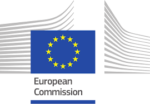About the Conference
The European Conference on Corporate R&D and Innovation (CONCORDi) is a biennial science-for-policy forum that brings together leading academics, policymakers, and industry experts to explore current and future EU policy challenges arising from cutting-edge research on corporate R&D, innovation, and industrial dynamics.
Since its inception in 2007, CONCORDi has been organized by the European Commission’s Joint Research Centre (JRC) in Seville.
The 10th edition of CONCORDi, set for 2025, will be hosted in collaboration with the OECD, building on past conferences to further the dialogue between scientific research and policy-making. The event will take place against the backdrop of increasing geo-political tensions and global economic uncertainty, intensifying international technological competition.
Amid growing concerns over technological sovereignty and strategic autonomy, governments worldwide are adopting innovation-driven policies (Edler et al., 2023; Amaral-Garcia et al., 2024). Positioned between the US-China technological rivalry (Godinho & Simões, 2023), the EU is reassessing its global competitiveness (Draghi, 2024), particularly in high-tech sectors where European firms often lag behind (Moncada-Paternò-Castello & Grassano, 2022; Bergeaud, 2024; Fuest et al., 2024).
At the same time, the EU must ensure its industrial progress aligns with Sustainable Development Goals (SDGs). In response, industrial policy tools—especially those supporting corporate innovation (Bloom et al., 2019), R&D tax incentives (Dechezleprêtre et al., 2023; OECD, 2023), and decarbonization strategies (Altenburg & Rodrik, 2017)—are gaining traction.
The rise in industrial subsidies and the expansion of policy evaluation datasets (Juhász et al., 2023) have enhanced academic insights into how industrial policies impact competitiveness and economic prosperity. However, striking a balance between innovation, competitiveness, and sustainability presents several challenges, including:
- The coordination of industrial policies within the EU single market (Fontana & Vannuccini, 2024).
- The disruptive effects of strategic technologies on employment and workforce adaptability, especially for smaller firms (Bessen et al., 2025).
Conference Themes & Sub-Themes
CONCORDi 2025 invites academic contributions that dissect the intricate relationship between strategic technologies, industrial policy, and sustainable competitiveness. The conference will focus on how strategic technologies can:
- Drive sustainable transitions
- Strengthen technological sovereignty
- Mitigate economic and social risks
- Unlock new development opportunities within a well-structured policy framework
The discussions will align with key policy reports such as:
- The Future of European Competitiveness (Draghi Report) – Urging bold initiatives to boost private investments in strategic technologies and leverage the Green Deal for business growth.
- Act, Align, Accelerate (Heitor Report) – Outlining transformative industrial and innovation policies to foster industrial competitiveness while tackling climate change and inequality.
Key Topics
- Technological Change & Diffusion
- Strategic industries and technologies: Identifying sectors heavily influenced by AI, biotech, and clean tech.
- Technology diffusion and spillovers: Exploring knowledge transfer, risk mitigation, and firms’ absorptive capacities.
- Strategic Technologies & Labour Market
- Workforce dynamics: Examining skill demand, training gaps, and employment patterns shaped by technology adoption.
- Regional disparities: Assessing the uneven impact of technology on different labour markets.
- Financing Innovation & the Role of Large Firms
- Funding innovation: Investigating venture capital, public-private partnerships, startup financing, and government grants.
- Influence of large firms: Understanding the role of big corporations in open innovation, venture building, and market competition.
- Industrial Policies & Strategic Technologies
- Policy evaluation: Measuring the impact of industrial policies on innovation, economic growth, and well-being.
- Policy design: Developing targeted policies to promote, regulate, and scale strategic technologies.
- Technology, trade, and geopolitics: Analyzing how global industrial policies shape the EU’s technological position and trade competitiveness.
Submission Guidelines
Academics are invited to submit high-quality extended abstracts (maximum 2000 words) by 31 March 2025.
- Double-blind peer review: Each submission will be evaluated by two independent reviewers. Only selected authors will be notified.
- Presentation opportunities: Between 50–70 papers will be selected for in-person presentations, while 5–10 submissions will be featured in poster sessions during conference breaks.
- Mandatory structure:
- Background & Motivation
- Methodology
- Results (only key findings, no expected results)
- Conclusion & Policy Implications (this section is mandatory for presentation selection)
- Formatting requirements:
- 2000-word extended abstract
- Reference list (maximum 500 words)
- One optional table/figure to illustrate findings
Registration & Important Dates
- Conference Registration Opens: 26 May 2025 (no registration fees)
- Authors of accepted abstracts must submit full papers by: 25 July 2025
- Conference Dates: 24–26 September 2025
- Limited travel reimbursement available for early-career researchers (subject to JRC approval).
Submit your abstract via the official submission link provided below- https://concordi2025.exordo.com/login

